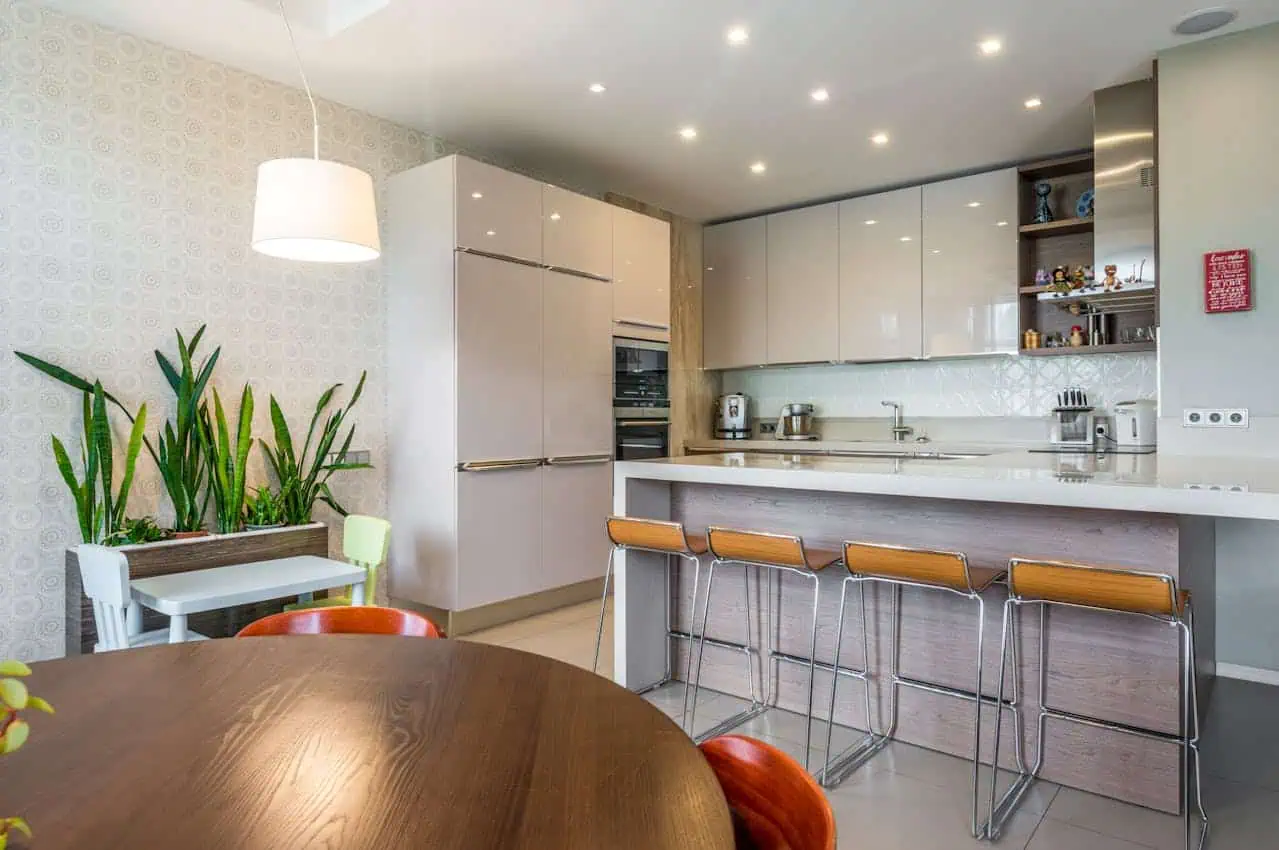The 24 x 36 lengthwise living kitchen house plan has grown popular among homebuilders and renovators seeking a functional, stylish, and space-efficient layout. This plan, compact yet spacious, is particularly appealing for narrow lots, weekend retreats, and anyone who values an open-concept, single-story design. Here, we’ll explore the advantages of this layout, key elements, and design tips to make the most of your space while creating a comfortable, welcoming home.
1. Introduction to 24 x 36 Lengthwise House Plans
A lengthwise house plan stretches the home across a narrow footprint, creating a streamlined look that naturally flows from room to room. The 24 x 36 dimensions optimize living and kitchen areas along the home’s length, a design particularly suited to smaller lots. For many homeowners, this plan offers a balance of affordability, simplicity, and spaciousness, ideal for primary residences, guest houses, or vacation properties. With thoughtful design, this layout can be tailored to various aesthetics—from rustic to contemporary.
2. Advantages of a Lengthwise Living Kitchen Plan
Enhanced Flow and Accessibility
Arranging the living room and kitchen in a lengthwise configuration improves the flow between spaces. With fewer barriers, the home’s interior feels larger, creating a sense of openness and connectivity between areas.
Open-Concept Benefits
The 24 x 36 layout promotes an open-concept feel, blending kitchen, dining, and living areas seamlessly. This setup encourages family interaction and offers flexible space for entertaining, relaxing, and dining, making the home feel both spacious and welcoming.
Efficient Use of Space
Despite its smaller footprint, a 24 x 36 house plan uses every square foot efficiently. With fewer hallways and walls, the design maximizes functional living space, creating a practical layout that still feels comfortable.
3. Key Elements of a 24 x 36 Lengthwise Living Kitchen Plan
Living Room Design Ideas
To create an inviting living area in a compact layout, focus on space-saving furniture and multi-functional pieces like sectional sofas or storage ottomans. For added depth, use natural light strategically, opting for sheer curtains or larger windows where possible.
Kitchen Layout Options
In a 24 x 36 home, the kitchen design needs to be both functional and aesthetically pleasing. Consider a single-wall or galley kitchen layout, which works well in narrow spaces. Adding a small breakfast bar or island can increase counter space without compromising movement. For storage, maximize wall space with overhead cabinets or open shelving.
Dining Area Placement
Placing a small dining area between the kitchen and living room keeps things accessible. Extendable tables or foldable furniture can help adapt the space as needed for guests without permanently consuming valuable room.
Bedroom and Bathroom Configurations
For the bedroom(s), position them to ensure privacy while keeping the layout cohesive. Compact, multifunctional furniture—such as beds with built-in storage or folding desks—can help make the most of smaller spaces. The bathroom should also prioritize functionality, using space-saving fixtures like corner sinks, compact toilets, and mounted storage.
4. Design Tips for Enhancing a 24 x 36 Lengthwise Layout
Color and Lighting Choices
Light, neutral colors open up narrow spaces, creating an airy feel throughout the home. Mirrors can enhance this effect, especially when placed across from windows to reflect natural light. Track lighting or pendant lights can add both functionality and style without taking up precious floor space.
Flooring Options for a Seamless Look
Using consistent flooring throughout the kitchen and living areas can make the space feel more unified. Lighter woods, tile, or vinyl with subtle patterns create a clean look and give the illusion of a larger area.
Maximizing Storage in Compact Spaces
In a smaller home, built-in cabinetry and multi-functional furniture are essential for maintaining an organized, clutter-free environment. Consider storage benches, wall-mounted shelves, or beds with hidden compartments to keep belongings organized.
5. Architectural Considerations for a Lengthwise House Plan
Structural Aspects
Before knocking down any walls, consult with a professional to understand the structural needs of your home. Certain walls may be load-bearing, so removing them could require alternative support solutions to maintain the building’s integrity.
Windows and Doors Placement
The placement of windows and doors is crucial in a narrow floor plan. Windows positioned along the home’s length allow natural light to flow, making the space feel bigger and more welcoming. Sliding or pocket doors save space and can add to the home’s modern aesthetic.
Outdoor Space Optimization
To extend the home’s functional space, consider adding a small deck or patio along the length of the house. This outdoor area can serve as a dining or lounging space, especially when seamlessly connected to the interior.
6. Customization Ideas for Different Lifestyles
For Families
If you’re designing for a family, consider built-in storage solutions and flexible spaces where kids can play or study. A 24 x 36 layout can accommodate family life by keeping everything accessible yet organized.
For Singles or Couples
For those who don’t need as much storage, this layout allows for minimalist designs with open floor plans and simple, comfortable furniture arrangements.
For Remote Workers
Remote workers can easily carve out a dedicated workspace within this layout. Consider a small desk tucked into a living area corner or using dividers to create a semi-private office space.
7. Budgeting for a 24 x 36 Lengthwise House Plan
Cost-Effective Building Materials
Choosing budget-friendly materials, such as engineered wood or vinyl, can reduce initial costs without compromising quality. This way, homeowners can still achieve their desired look affordably.
Energy-Efficient Features
Investing in energy-efficient windows, insulation, and appliances not only helps reduce monthly bills but also adds to the home’s overall comfort. With rising energy costs, these investments can make a big difference in the long run.
DIY vs. Hiring a Contractor
While many people can take on DIY projects in smaller homes, complex installations or structural changes typically require a professional contractor. Budget accordingly for these projects, especially if you’re new to DIY homebuilding.
8. Frequently Asked Questions
- Can a 24 x 36 House Plan Work for Families?
- Yes, with smart storage and layout choices, this plan can work for small families, especially those who enjoy an open-concept living space.
- How Much Does It Cost to Build a 24 x 36 House?
- Costs vary based on materials, labor, and location, but a small footprint can reduce expenses.
- What Are Some Common Challenges with a Lengthwise Layout?
- Maximizing storage and keeping a spacious feel can be challenging but is achievable with thoughtful design.
- How Can I Make a Narrow Layout Feel Bigger?
- Use light colors, consistent flooring, and plenty of natural lighting to visually expand the space.
9. Conclusion
A 24 x 36 lengthwise living kitchen house plan combines affordability, functionality, and modern design in a compact footprint. With the right furniture, storage, and layout choices, this plan offers a highly efficient and comfortable home. Whether for a family, single, or couple, this layout can be customized to fit any lifestyle. If you’re considering building or renovating, a 24 x 36 house plan might be the perfect blend of style and functionality.



